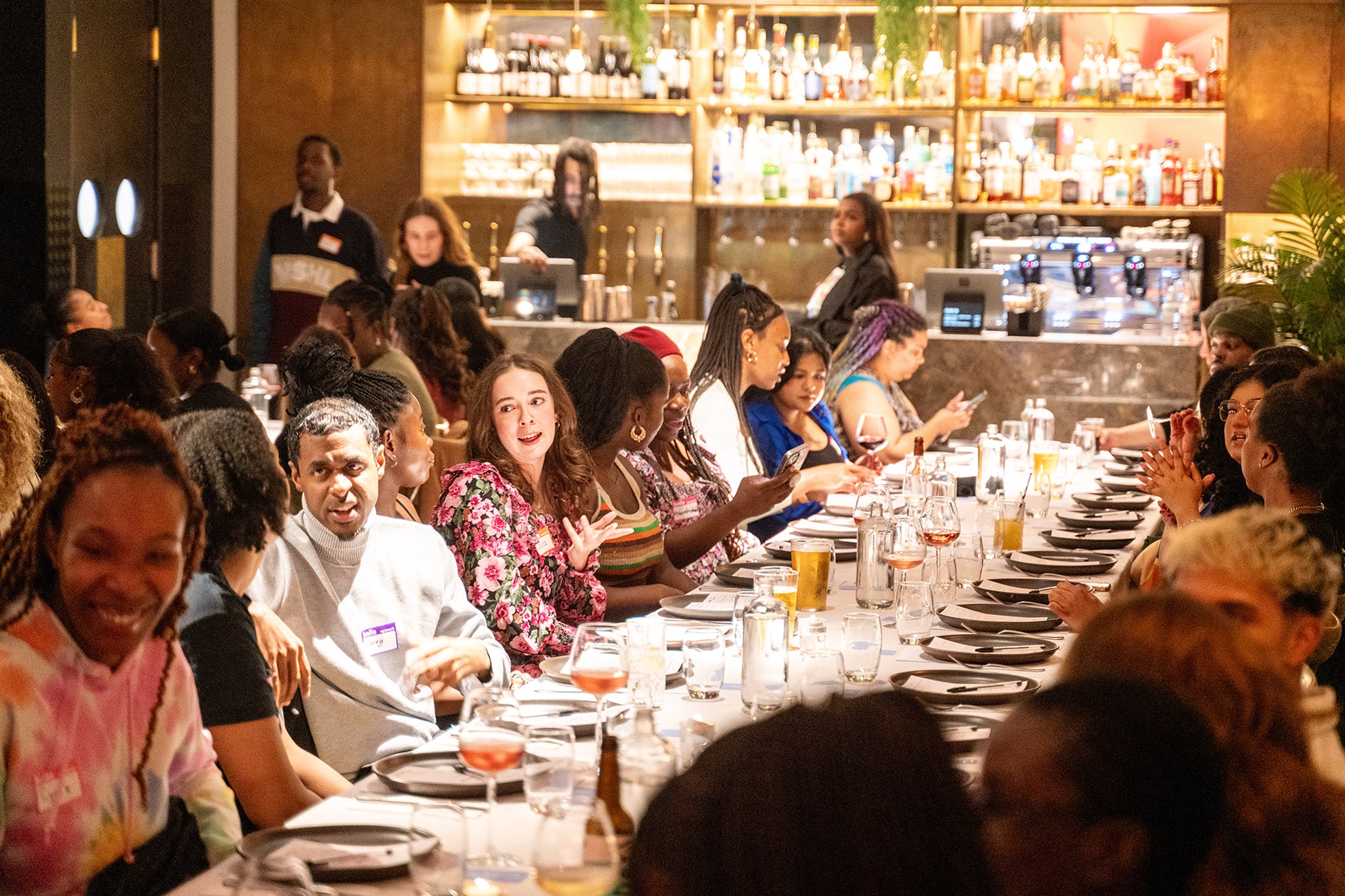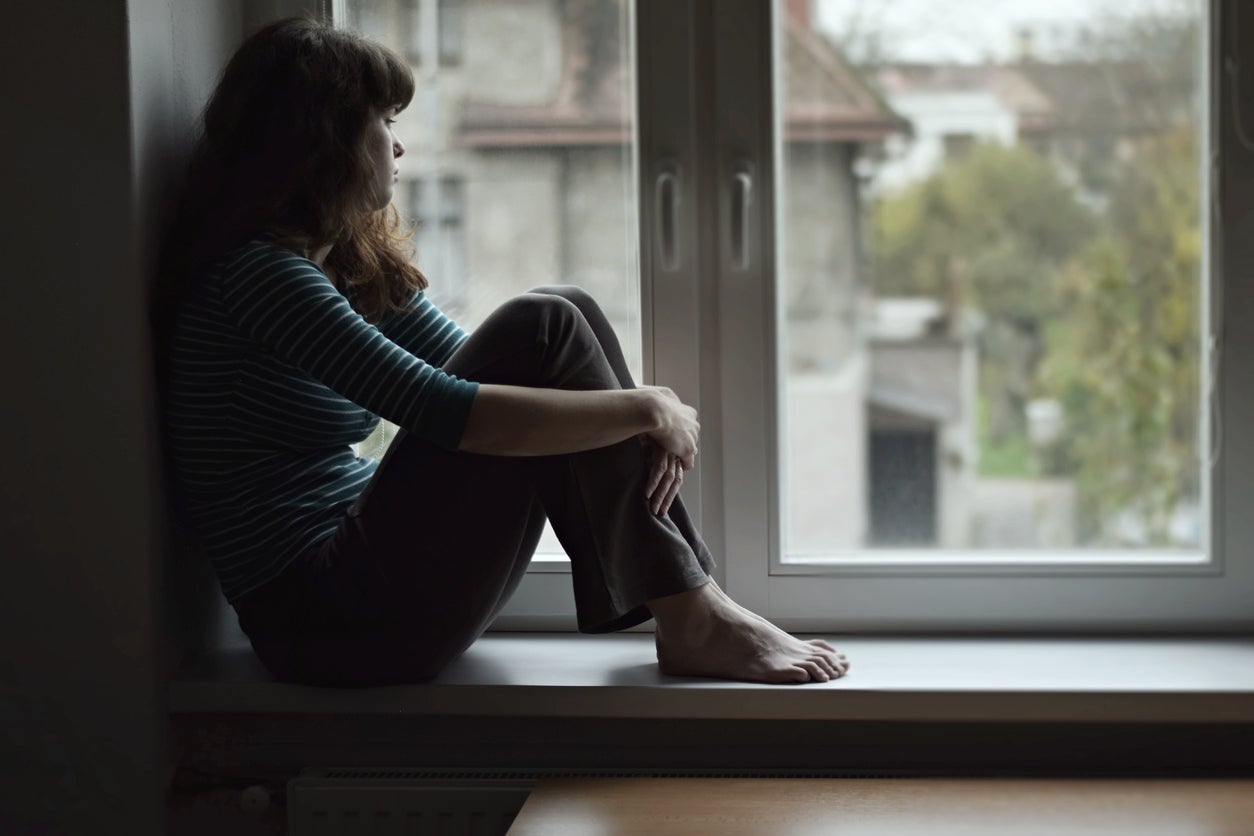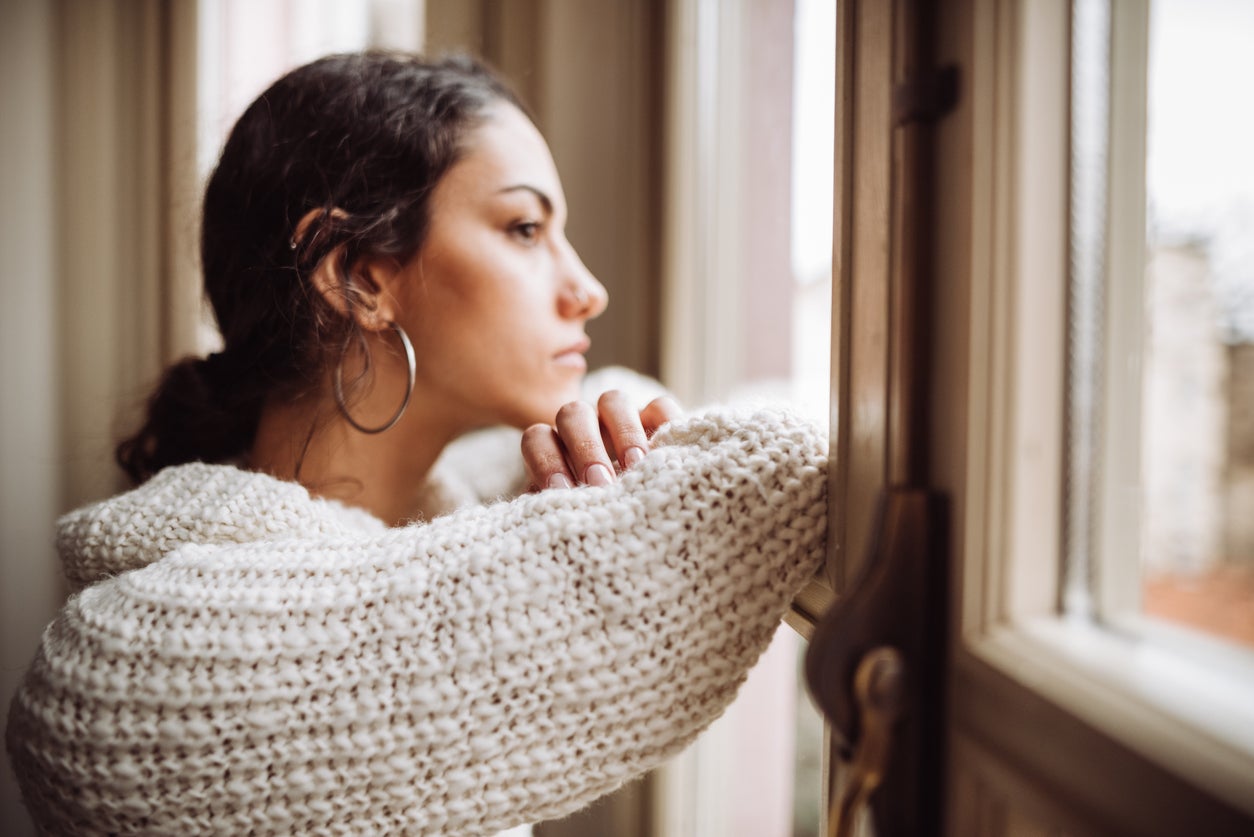How millennials like me became the loneliest generation of all
When she was younger, loneliness seemed to be a problem reserved for older people, but at just 28 years old, Chanté Joseph realised that she, like many of her peers, was suffering from a deep feeling of disconnection. It wasn’t dates they needed, it was real mates. So she tried to do something about it…


Like many people my age, when I thought about loneliness I was instantly transported back to my school days when we would go on trips to care homes to keep the residents company. They craved social interaction and found the innocent curiosity of children endearing. Or that’s what we were told.
I also remember those greyscale Age UK adverts with the faces of sad elderly people who needed companionship. Your donation would turn that frown upside down.
So it feels very strange now to be surrounded by hyper-connected millennials like me and Gen-Zers who are now bonding at an event that I have organised to combat loneliness among us. And it might feel even stranger to anyone who knows me as being super social with a large platform and tens of thousands of followers, to hear me admit that I too occasionally feel lonely.
I launched Strangers in the City earlier this year because according to research, it’s people of my age group who are now the loneliest people in society. It might shock some but looking at the culture we’ve grown up in, it makes sense, sadly.
Many people attribute this sudden wave of loneliness to the pandemic and how it has changed us and society. However, the signs were there long before Covid: in 2014, Britain was dubbed the loneliness capital of Europe. Back in 2024 and post-lockdown, people felt even lonelier.
This year, a survey of 10,000 people from The Belonging Forum found that one in 10 people say they have no close friends. Loneliness is an ageless modern-day curse that is affecting all of us.
I can see the factors that have contributed to my own feelings of loneliness: being a freelancer with a sporadic working schedule, having friends scattered all over the world and living on my own. The days of calling to ask, “What are you up to?” and making a plan to meet up on the same day are long gone. I adore my friends but they have their own busy lives and, today, being social is about scheduling, checking in and finding a time six weeks later to meet up.
Catching up with our friends’ news on social media is now the norm, but it’s only now that we are really understanding that these interactions are no substitute for the richness of real-life connections and relationships. When I’m scrolling on TikTok, I am often confronted with weepy women in their early and mid-twenties, in tears about the lack of real friendships and authentic connections.

This is a typical story for young women; we still live in a society where we are “told” what our lives should look like as adults. When we defy those expectations: single, child-free and living life alone, we begin to feel shame for those experiences. It also doesn’t help watching people romanticise those lifestyles online.
The sad truth is, even when you try to resist it, being online means you can’t help measuring your life against others, even when you know the reality might be different behind a glossy facade. Comparison is the thief of joy, and the dopamine hit you get from likes, comments and interactions is fleeting. None of it compares to the warmth of in-person interactions or just deep conversations with friends who make you feel known and validated.
In dealing with my own complicated feelings of loneliness, I realised that people desperately wanted connection but lacked the bravery to put themselves out there
Who we are online is not an accurate reflection of our full personalities – it is a performance. When we realise people don’t like us for who we are but for what we attempt to be, it can feel incredibly lonely. Being properly seen and accepted is the most incredible feeling, but my generation constantly denies itself the opportunity to experience it because we fear showing anything but our best side.
Rebuilding our social lives would be easy if the fear of being seen as trying didn’t hold us back from starting conversations or making the first move. At the root of all of this is shame; I cannot count the number of times that I’ve shied away from making friends because I worried about being rejected; that people would somehow sniff out a stench of loneliness on me that I couldn’t mask.
There have been weekends when I had no plans because I didn’t reach out to anyone. When you’re living alone, days go by without speaking to someone, you can end up watching other people’s lives unfold on Instagram from the couch you barely leave.
This feeling is self-perpetuating and self-fulfilling. Mark Travers, an American psychologist, describes it as the shame-loneliness loop. This chicken-and-egg situation can keep us stuck and isolated for years. If you feel fundamentally unworthy and have a deep fear of rejection, it is the feeling of shame that will keep you lonely.

You can also be in a group of friends and still feel alone because you’re not understood or don’t feel like you belong. I’ve often sat with friends and felt like I was performing, knowing deep down that this is not who I am, but how I think I should be around them. When you’re disconnected from yourself – the only person you have unconditionally – loneliness is magnified.
Suffering from loneliness doesn’t just take a toll mentally; it affects our physical health too. According to US doctor Vivek Murthy, loneliness and social isolation “increases the risk for premature death by 26 per cent and 29 per cent respectively”. In addition, a lack of social connection is associated with a 29 per cent increased risk of heart disease and a 32 per cent increased risk of stroke.
In dealing with my own complicated feelings of loneliness, I realised that people desperately wanted connection but lacked the bravery to put themselves out there. It’s why I have taken this as an opportunity to create something that would solve the problem and come up with a series of events in spaces where strangers could come to and form new friendships and connections.

Without the anxiety of being the only new person in the room, these events give people a neutral space to make friends. I want to recreate the feeling of the first day of school or university; those times when we are forced into meeting new people. It may feel excruciatingly terrifying at the time, but those are times of endless possibility too. We need to remember there is a joy to that too. And you don’t have to worry about doing the hard work; you just have to show up because everyone there is feeling the same.
Conversations about loneliness are much more common now, and we are slowly able to talk about it without feeling cringe-worthy or ashamed. So far, I’ve organised 10 sold-out events where people have come from across London to meet strangers who are intentional and open about making new friends.
At the end of our second series, we will have had just over 300 people come along and the feedback has been incredible. It has given me so much pleasure to watch people come along somewhat nervously, and leave with beaming smiles, bellowing laughter and a bunch of new mates.
And it has helped me too. I have made friends who I know will be with me for life. Do I still feel lonely? Of course. I know these events won’t solve the loneliness problem at its core. The issue is much bigger than that – but I hope it goes some way to opening up the conversation about how we’re really feeling. If just two lonely souls can connect, then things will happen, and change will be possible.





Join our commenting forum
Join thought-provoking conversations, follow other Independent readers and see their replies
Comments